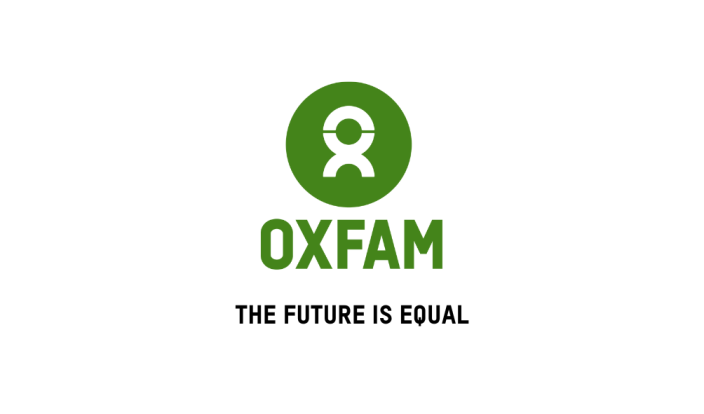Nigeria is the most populous country in Africa with an estimated population of 213.4 million, which is equivalent to the combined population of the rest 15 West African countries put together. Economic inequality in Nigeria has reached extreme levels, despite being the largest economy in Africa.
• In Nigeria, the 3 richest men have more wealth than 83 million Nigerians, and their wealth has grown by a third since the start of the COVID-19 pandemic.
• 133 million Nigerians are living in multi-dimensional poverty.
• Nearly 25 million Nigerians are at risk of facing hunger between June and August 2023.
• It is estimated that Nigeria now has about 20 million out-of-school children.
• About 6 out of every 10 Nigerians lack access to quality primary healthcare services.
• Nigeria has the second highest burden of stunted children in the world, with a national prevalence rate of 32% of children under 5 years of age.
• An estimated 2 million children in Nigeria suffer from severe acute malnutrition (SAM).
• While the country represents 2.4% of the world's population, it currently contributes 10% of global deaths for pregnant mothers.
• In 2022, allocation to Nigeria’s agricultural sector represented just 1.8 per cent of the budget.
• According to the Nigerian Debt Management Office (DMO), the incoming administration of the country could inherit a public debt of N77 trillion ($172 billion).
• In 2022, Nigeria's debt service-to-revenue ratio was at 80.6 percent — a figure far above World Bank's suggested 22.5 percent for low-income countries like Nigeria.
• Consumer price index (CPI), which measures the rate of change in prices of goods and services, rose to 22.04 percent in March 2023.
• Nigeria's tax-to-GDP ratio in 2020 (5.5%) was lower than the average of the 31 African countries in Revenue Statistics in Africa 2022 (16.0%) by 10.4 percentage points.
The good news is that the country has an expanding economy with abundant human capital and the economic potential to lift millions out of poverty.
The incoming government needs to take urgent steps towards ending hunger, reducing inequality, and reducing the number of Nigerians living below the poverty line.
To stimulate economic recovery the new government needs to realize that Small & Medium Enterprises (SMEs) are key to building the economy that is fair and just as they constitute sustainable approach to tackling the developmental challenges that the economy is facing.
The SME sector has proven to be the backbone of major developed and emerging economies, as an important contributor to employment and economic growth.
According to the International Labour Organization (ILO), In Nigeria, SMEs contribute 48 percent of national GDP, account for 96 percent of businesses and 84 percent of employment (not the big corporations).
Networking and collaboration are important and essential for building a healthy SME ecosystem and unlocking the opportunities that it holds.
Though significant growth has been achieved in the SME sector recently, there is still much to be done to further leverage the opportunities the ecosystem presents.
To facilitate inclusive business environment, where women and youth are empowered to participate, the incoming government needs to provide the enabling environment, the technical support and training that the SMEs need.
To narrow the wide education inequality between the rich and the poor the incoming government needs to invest significantly in free universal education, with an emphasis on improving access to high-quality primary and secondary education.
The incoming government should as a matter of priority invest a minimum of 15% of the national budget in the health sector.
It should also allocate at least 10% of the budget to Agriculture, encouraging women and youth in agricultural businesses with farm inputs.
It should develop a national agricultural investment plan that is gender-sensitive and climate-proof, which seeks primarily to support small-scale farmers in non-cash crop sectors.
It should commit more to non-violent conflict resolution to solve the farmers vs pastoralists conflicts that is threatening food security and making Nigeria more dependent on food imports.
The government should commit to implement universal and adequate social protection measures to support the people, ensuring that the poorest and most vulnerable people have social protection.
The incoming government needs to curtail the rising inflation by reducing the cost of governance at all levels, depending less on imported goods, increasing export, and tackling corruption.
To generate more income and reduce revenue loss through taxation, the incoming government needs to remove tax concessions to rich individuals and corporations, make its tax system more progressive and transparent and increase collection of income taxes.
Other recommended measures to increase tax revenues include:
- To renegotiate contracts with extractive sector companies.
- To increase income tax rates for the wealthiest individuals and corporations.
- To consider adding a “solidarity” tax on top of these to cover the additional needs for post-COVID recovery by taking steps to tax wealth including raising the taxes on financial transactions, inheritance and gifts, and capital gains.
There is a need to continue to prevent illicit financial flows, from corrupt, or criminally inclined individuals or corporations. Recipient nations should be prevailed upon to take measures to discourage illicit financial flows into their countries by enforcing more diligence checks.
The incoming government should tackle sexist laws that discriminate against women and create new gender-equal laws to uproot violence and discrimination.
All sectors of the society should urgently define policies that will ensure that women, people living with disabilities (PWDs) and other vulnerable groups are represented in all decision-making spaces.
Oxfam remains committed to working with the incoming Nigeria government, the private sector, and the civil society towards achieving a more sustainable, inclusive and just economic recovery, and poverty reduction.
Dr. Vincent Ahonsi
Country Director
Maxwell Osarenkhoe | Media and Communications Officer | maxwell.osarenkhoe@oxfam.org | Phone: +234 807 594 9898
For more information about Oxfam and its work in Nigeria, visit www.nigeria.oxfam.org.
Follow Oxfam on Twitter, Facebook, Instagram and LinkedIn

